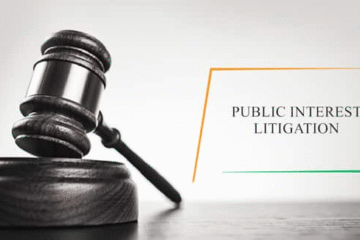
This article is written by Himanshu Rawat of 1st Semester, LLM student of Chaudhary Charan Singh University,
Abstract
Parliamentary sovereignty, often regarded as a fundamental principle in many democratic systems, especially the United Kingdom, refers to the supreme legal authority of the parliament. Under this doctrine, legislative bodies can make, modify, or repeal any law, and their decisions cannot be overridden or challenged by other institutions, such as the judiciary or the executive. This means that no law or decision can be unconstitutional in a jurisdiction that strictly adheres to parliamentary sovereignty since the constitution or other foundational laws derive their authority from the sovereign parliament itself. However, in the contemporary context, the pure form of this doctrine has faced challenges due to factors like international treaties, human rights legislation, and the evolving nature of democratic governance.
Keywords: fundamental principle, democratic governance, judiciary, executive
Parliamentary sovereignty
Parliamentary sovereignty, also called parliamentary supremacy or legislative supremacy, is a concept in the constitutional law of some parliamentary democracies. It holds that the legislative body has absolute sovereignty and is supreme over all other government institutions, including executive or judicial bodies. It also holds that the legislative body may change or repeal any previous legislation and so it is not bound by written law (in some cases, not even a constitution) or by precedent. Parliamentary Sovereignty is the concept in the constitutional law of some parliamentary democracies is also known as Parliamentary Supremacy or legislative Supremacy. It holds that the legislative body has absolute sovereignty and also holds that the legislative body may change or repeal any previous legislation and so it is not bound by written law (in some cases, not even a constitution) or by precedent. Parliamentary Sovereignty often to general law-making and makes it subject to external judicial review, where laws passed by the legislature may be declared invalid in certain circumstances. Many states have sovereign legislatures including the United Kingdom, New Zealand, the Netherlands, Sweden, Norway, Denmark, Finland, and Jamaica.[1]
Introduction
Parliamentary sovereignty, also referred to as legislative supremacy, is a fundamental principle in the constitution of many parliamentary democracies, including the United Kingdom. It refers to the doctrine that Parliament has the supreme law-making authority and its enactments are the highest form of law. It is supreme over all the government institutions, including executive or judicial bodies. The concept holds that the Parliament is supreme to all other government institutions, including executive or judicial bodies. It also implies that neither the judiciary nor the executive can supersede or set aside laws established by the Parliament [2]
Parliamentary sovereignty, often termed as the “supremacy of Parliament”, is a constitutional principle pivotal in many legal systems. At its core, it signifies that the legislature has the ultimate power to make, amend, or repeal laws without interference from other institutions, particularly the judiciary. The principle finds its most classic embodiment in the UK’s constitutional structure.
A.V.DICEY’S Rule:
A.V.Dicey, a British constitutional scholar, in his book introduction to the study of the law of the constitution published in 1885, presented three fundamental principles of the British constitution.[4]
- The parliament’s sovereignty: This principle states that the supreme law making authority in the country is the parliament which can make or unmake laws without interference from other institutions or authorities.
- Rule of law: According to this principle no one is above the law, and the law should apply equally to all citizens, including government officials; everyone is subjected to the law.
- Respect for fundamental rights: It holds that rights are inherent in individuals and that the state must protect and uphold them.[2]
Historical Origin of Parliamentary Sovereignty
The roots of parliamentary sovereignty can be traced back to England’s historical evolution. Following the Glorious Revolution of 1688, the Bill of Rights in 1689 delineated the shift of ultimate power from the monarchy to the Parliament. This led to the rise of the doctrine, particularly under the writings of Sir Albert Venn Dicey in the 19th century.
The Supremacy Clause of the Constitution, Article VI, Clause 2, says that the Constitution, federal laws made according to it, and agreements passed under its power are the “supreme law of the land,” superseding any opposing state laws. In India, parliamentary supremacy is controlled by the Indian Constitution, which is subject to judicial scrutiny.[3]
Three main tenets characterize parliamentary sovereignty.
- The Parliament can make laws concerning any subject.
- No Parliament can pass laws that future Parliaments cannot change.
- No body, including courts, can question the validity of laws.
Parliamentary Sovereignty in the Modern Age
As globalization and international relations grew, many countries began entering treaties and agreements that, in some ways, limited the extent of their parliamentary sovereignty. The European Union (EU) serves as an exemplary case. While the UK was a member, many argued that the nation’s sovereignty was compromised, given the European Court of Justice could overrule UK law.
Challenges and Critiques
- Judicial Review; Modern democracies often possess a robust system of judicial review where courts can scrutinize the constitutionality of laws. It’s argued this challenges parliamentary sovereignty
- Human Rights: International human rights treaties may limit parliamentary powers. Laws violating these treaties might be considered null and void.
- Decentralization and Federalism: In federated countries, the division of powers between central and local governments may limit the full realization of parliamentary sovereignty.
Parliamentary Sovereignty and the Judiciary
The relationship between parliamentary sovereignty and the judiciary is complex. The traditional understanding is that courts cannot question the validity of legislation and must apply it as passed by Parliament. This protects the democratic process, ensuring that the elected representatives’ decisions are not undermined by non-elected judges.
However, in practice, the judiciary plays a role in interpreting legislation, and through this interpretative process can effectively influence the meaning and application of legislation. Courts in some jurisdictions have also developed doctrines allowing them to decline to apply legislation that is contrary to higher-order constitutional principles, presenting a nuanced picture of parliamentary sovereignty.
Core Tenets
- Unlimited Legislative Power: Parliament can legislate on any subject matter
- No Parliament can bind its successors: A law passed by one Parliament can be amended or repealed by a future Parliament
- No external body can overrule Parliament: No institution, including courts, can challenge the legitimacy of laws passed by Parliament
Limitation of Parliamentary Sovereignty
While parliamentary sovereignty is a cornerstone of many constitutions, it is not absolute. Internally, constitutional statutes or principles may limit Parliament’s power. Externally, international law, particularly European Union law, has posed challenges to the principle of parliamentary sovereignty. For instance, the European Communities Act 1972, provided European law supremacy over national law, a position confirmed in the Factortame litigation
Parliamentary Sovereignty in modern content
Parliamentary sovereignty has evolved in the context of modern democratic societies. Human rights considerations have had a significant impact. The UK’s Human Rights Act 1998, for instance, although affirming the principle of parliamentary sovereignty, empowers courts to issue a “declaration of incompatibility” when legislation is inconsistent with the European Convention on Human Rights.
Moreover, constitutional changes such as devolution in the UK have raised questions about the continued absolute power of Parliament. Today, legislative power is shared with devolved bodies like the Scottish Parliament and Welsh Assembly.
Parliamentary Sovereignty: A Comparative view
While the doctrine of parliamentary sovereignty is a foundational element of the UK’s uncodified constitution, its application varies in other jurisdictions. For instance, in countries like the United States and India, the supremacy of the constitution, interpreted by the judiciary, takes precedence over the legislature. In the U.S., the principle of constitutional supremacy, established through the system of judicial review, gives courts the power to nullify laws that they find incompatible with the Constitution. Similarly, in India, the concept of ‘basic structure’ doctrine limits the Parliament’s power to amend the Constitution, particularly its fundamental features. Therefore, parliamentary sovereignty, as it exists in the UK, is not a universally accepted concept and differs significantly in countries with written constitution or strong systems of judicial review
The influence of European Law
One of the most significant challenges to parliamentary sovereignty came with the UK’s membership in the European Union. The European Communities Act 1972 made European law part of UK law. Further, in cases of conflict, European law was to take precedence, effectively compromising parliamentary sovereignty
The famous Factortame case (1990) illustrated this when the House of Lords suspended an Act of Parliament that was potentially incompatible with European Union law. However, the UK’s departure from the EU, known as Brexit, has had significant implications for parliamentary sovereignty. With the European Union (Withdrawal) Act 2018, the supremacy of EU law has ended, and parliamentary sovereignty restored, although the practical implications remain a matter of political and legal debate
Devolution and Parliamentary Sovereignty
The process of devolution in the UK has also had an impact on parliamentary sovereignty. With the transfer of certain legislative powers to the Scottish Parliament, Welsh Assembly, and Northern Ireland Assembly, the once absolute and centralized legislative authority of the UK Parliament has been somewhat diluted. While technically, the UK Parliament retains the power to legislate on devolved matters or to abolish the devolved bodies, doing so without consent would create significant constitutional controversy
Humans Rights and Parliamentary Sovereignty
The incorporation of the European Convention on Human Rights into UK law via the Human Rights Act 1998 (HRA) presented another challenge to parliamentary sovereignty. Although the Act maintains the principle of parliamentary sovereignty by not allowing courts to strike down incompatible legislation, it introduces a mechanism for courts to declare that a statute is incompatible with the rights protected by the HRA. This ‘declaration of incompatibility’ does not affect the validity of the Act of Parliament [2]. Still, it puts significant moral and political pressure on Parliament to amend the legislation to bring it into compliance with human rights standards.
Parliamentary Sovereignty in the 21st century
The challenges of the 21st century, including issues like climate change, terrorism, and now global pandemics, test the limits of parliamentary sovereignty. How do we reconcile the need for quick, efficient decision-making in emergencies with the principles of parliamentary sovereignty and democratic accountability?
In many instances, legislatures have granted executives wide-ranging powers to manage these crises, raising concerns about the erosion of parliamentary sovereignty. In this context, maintaining the balance between efficient governance and upholding the principle of parliamentary sovereignty is a delicate but necessary task.
Conclusion
Parliamentary sovereignty continues to be a fundamental principle in many democracies. However, it operates within a complex network of constitutional, political, and societal forces. The changing nature of sovereignty, influenced by human rights law, international obligations, and constitutional reform, reflects the evolving nature of democracy itself. Despite these changes, the principle of parliamentary sovereignty continues to endure. It encapsulates the central position of the people’s elected representatives in the democratic process, ensuring that the ultimate power to make or unmake laws rests with them. It remains a crucial concept for maintaining the balance of powers and democratic legitimacy in parliamentary democracies. However, like all constitutional principles, it must continue to adapt and evolve in response to the changing demands of society. The strength of the parliamentary sovereignty principle lies not in its immutability, but in its capacity to reflect the democratic values of the people it serves. As we move further into the 21st century, it is this adaptability that will ensure the continuing relevance and vitality of parliamentary sovereignty. Continuing the previous response, let’s delve deeper into the different aspects of parliamentary sovereignty. Parliamentary sovereignty, as a concept, has evolved over time and differs significantly across jurisdictions. While it offers a streamlined approach to governance by providing an unchallengeable legislative authority, it must be balanced against modern-day concerns such as human rights, international treaties, and the rise of judicial activism. The continued relevance of this doctrine will undoubtedly be shaped by geopolitical changes, shifts in national sentiments, and legal evolution. Only time will tell if the purest form of parliamentary sovereignty remains a revered principle or if a more nuanced, balanced approach will be the norm. Parliamentary sovereignty has been a resilient principle. Despite the challenges and modifications, it continues to play a vital role in the functioning of many democratic governments. This endurance testifies to its inherent adaptability, as it has proven to be flexible enough to accommodate the evolving complexities of modern governance. While the principle may continue to face challenges, such as those posed by international cooperation, human rights norms, or devolution of powers, it is this ability to adapt to changing circumstances that will ensure its continued relevance.
Ultimately, parliamentary sovereignty remains one of the cornerstones of democratic governance. Its underlying idea that laws should be made by the elected representatives of the people is a fundamental principle of democratic self-governance. As we continue to grapple with the challenges and uncertainties of the 21st century, the principle of parliamentary sovereignty will continue to be an essential part of our constitutional discourse.
Plagiarism Report:
- Parliamentary sovereignty ( https://en.wikipedia.org/wiki/Parliamentary_sovereignty )
- Introduction– ( https://academic-accelerator.com/encyclopedia/parliamentary-sovereignty )
- Historical (https://unacademy.com/content/bpsc/study-material/polity/synthesis-of-parliamentary-sovereignty-and-judicial-supremacy/)
- A.V.DICEY’S Rule(https://legalvidhiya.com/parliamentary-sovereignty/)
REFERENCES:
- https://en.wikipedia.org/wiki/Parliamentary_sovereignty
- https://legalvidhiya.com/parliamentary-sovereignty/




0 Comments